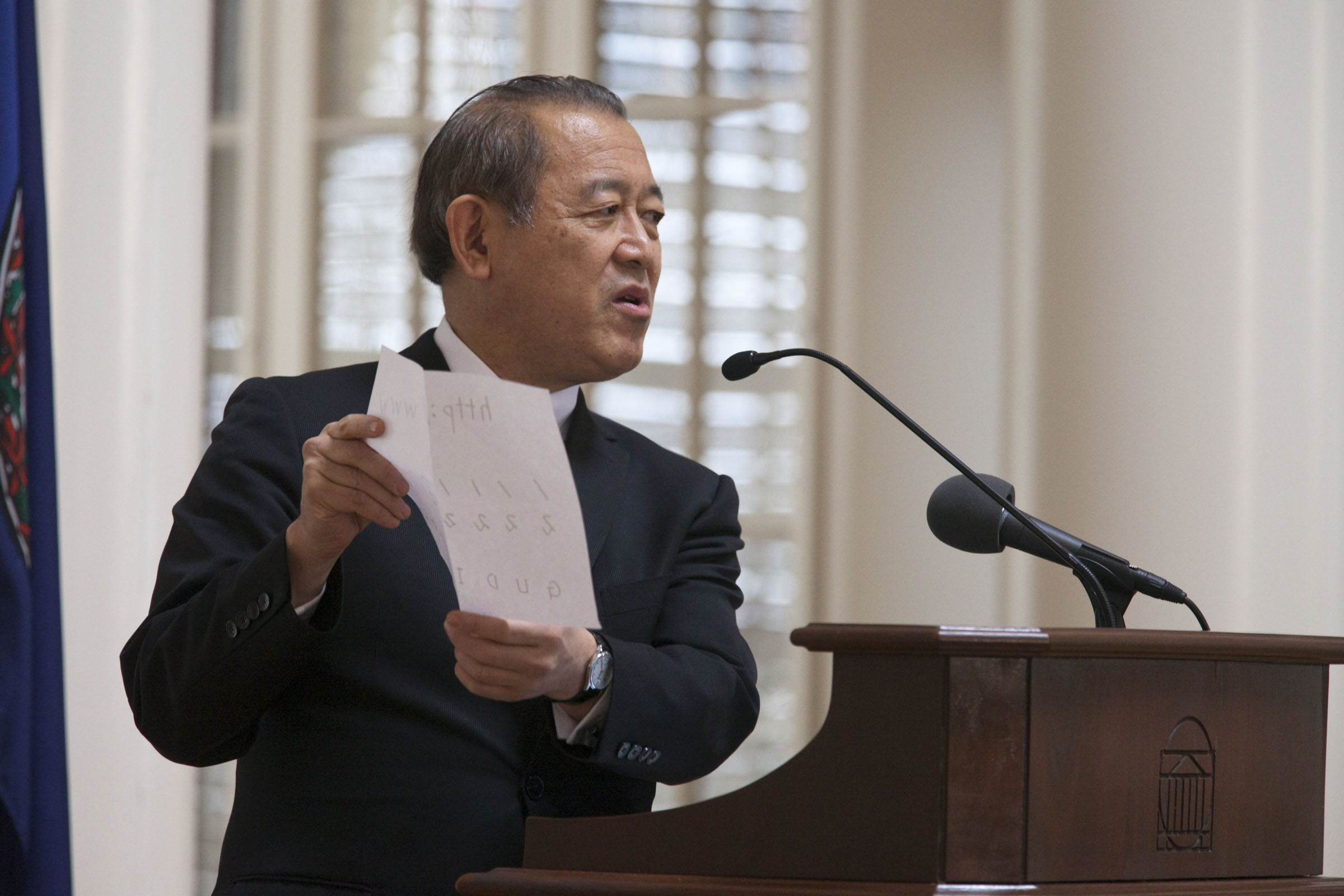Japan's ambassador to the United States, Ichiro Fujisaki, cautioned a University of Virginia audience Wednesday against taking for granted the robust relations enjoyed by Washington and Tokyo.
"There are four features that Japan and the U.S. have in common," he told the audience of about 100 in the Rotunda's Dome Room. "Security interests in Asia Pacific – we would like the Asia Pacific to remain a safe place."
The ambassador said that the two countries also remain strong economic and global partners. "We are cooperating in energy, research and development. We are partners in enhancing the world economy."
He also touched on shared value systems. "Democracy, human rights, freedom of speech – we share them. This is often taken for granted."
Fujisaki said the fourth commonality is perhaps the most important. "Americans and Japanese like each other. Come to think of the fact that we have so many differences, it's astonishing that we have these four features."
The Japanese ambassador encouraged the audience to consider other nations. "There are not too many countries that share all four features," he said. "But I'm not saying we can be complacent."
Fujisaki said there is no room in international relations for surprises. "Not between countries. Never. You have to tell each other your intentions. Never take anything for granted."
He opened his talk as a professor might, issuing handouts. One of the papers had printed on it what appeared to be a URL, including the numbers one and two. Fujisaki asked the audience to guess "what these two figures mean."
"The first one to come to the right answer, I would like to present a gift." He raised his left hand, which held a copper coin with the official seal of Japan on one side and the flags of Japan and the United States on the other.
"This is a coin that I designed," he said. A few moments later, an audience member correctly guessed that number one represented the United States and number two, Japan.
The numbers are country rankings in areas such as contributions to United Nations initiatives, Fujisaki explained, including enhancing security in Afghanistan, development assistance, research and high-speed rail service. Fujisaki used the handout as another demonstration of the interconnectedness of U.S.-Japan initiatives.
Wednesday's talk was part of the Ambassador's Speakers Forum, hosted by the Office of the Vice Provost for International Programs. Voice of America Pentagon correspondent Al Pessin will discuss U.S. security issues in particular relation to China and Iran on Feb. 21 at 5 p.m. in the South Lawn Commons auditorium.
Media Contact
Article Information
February 10, 2011
/content/japanese-ambassador-dont-take-robust-us-japanese-relations-granted

